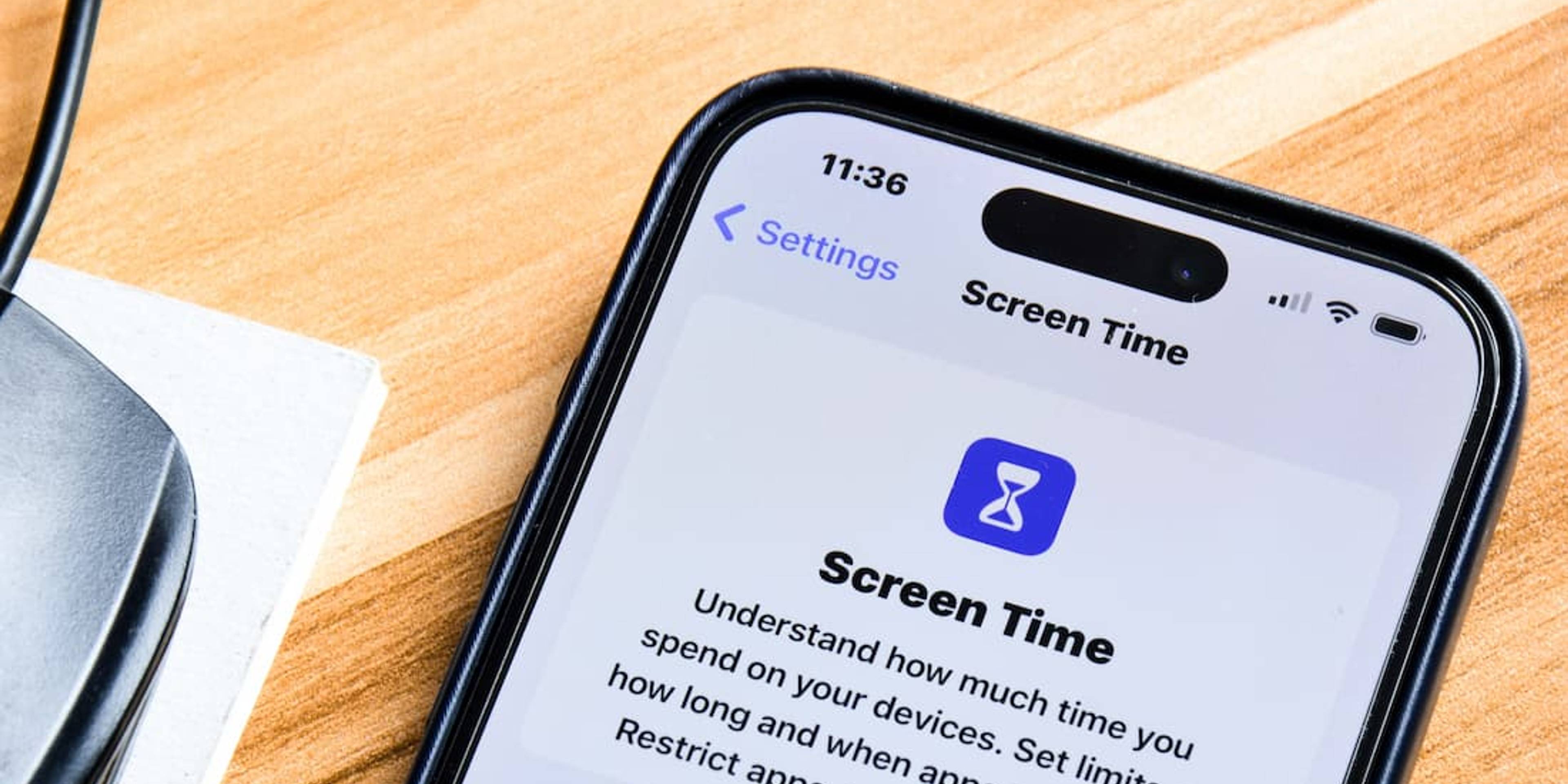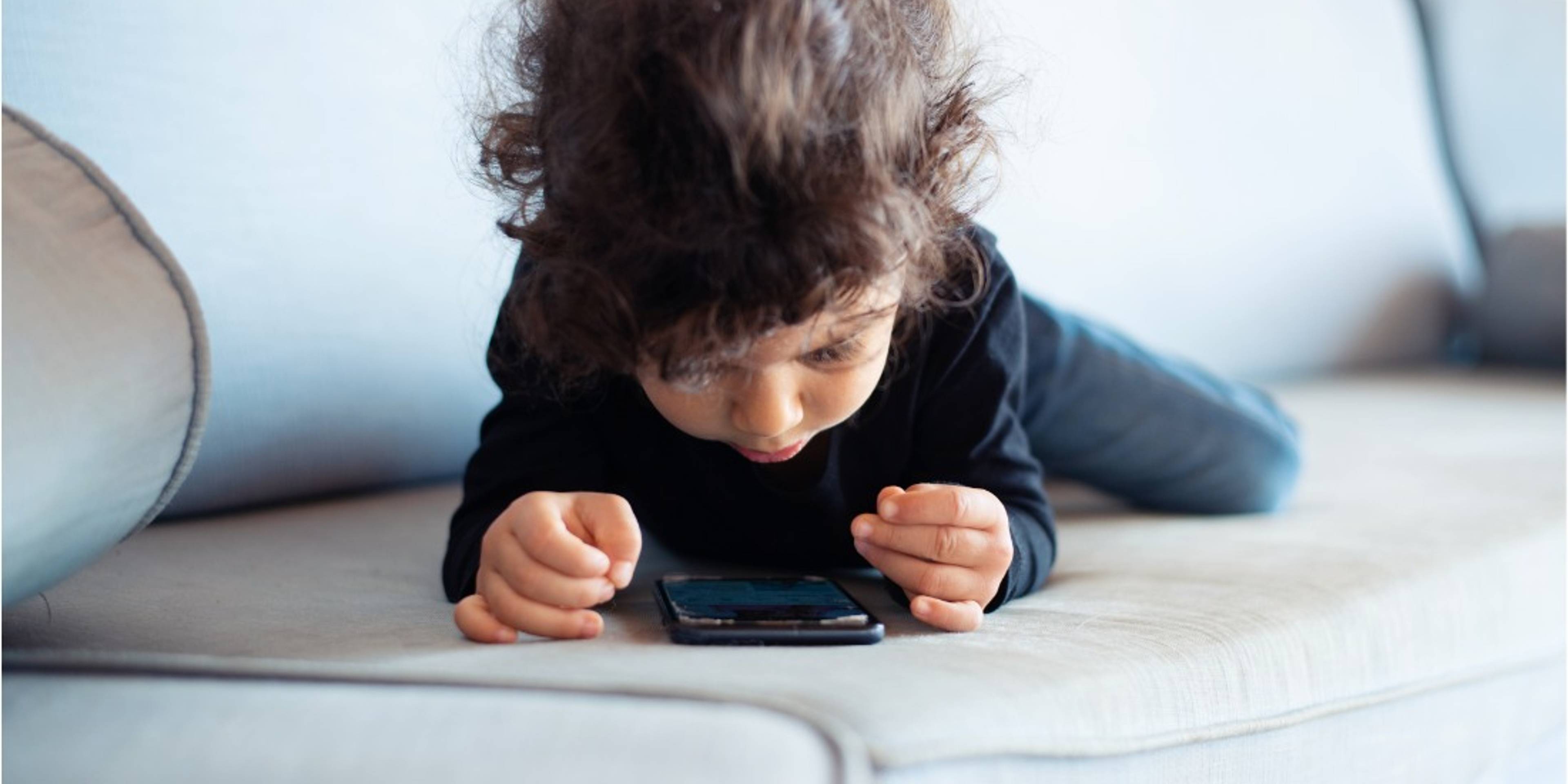September 09, 2025
“[They use devices] alllllllll day long”. What do children think about our tech use?
![“[They use devices] alllllllll day long”. What do children think about our tech use?](https://cdn.sanity.io/images/jxfh43in/content-prod-d2c/79f219275088655f59590f61ff29b6bc8b0d77f8-1100x733.jpg?w=3840&h=1920&q=70&fit=crop&crop=center&auto=format)
We're all used to reading about children and young people's increasing use of digital tech. But what about adults' use? And what impact might our tech use have on family life?
Parents today are spending an unprecedented amount of time on their devices. One study found that parents spend an average of nine hours per day engaged with screen devices. Over four hours of this is on smartphones, averaging 67 phone checks per day. Despite children's central role in family life, their voices and perspectives on the device use of the adults around them have been largely neglected in research.
Along with colleagues, our latest Researcher of the Month, Professor Cara Swit, has published a fascinating study exploring the experiences and perceptions of children aged six to nine about their parents’ device use at home and its impact on them.
Summary
"Even at a young age, children form judgements about what constitutes an acceptable amount of time spent on devices and can recognise when their parents spend too much time on them.” (Cara Swit, et al., 2025)
The researchers visited a local primary school in Christchurch, New Zealand, where they ran fun and developmentally appropriate workshops with six to nine year old pupils, to explore children’s perspectives and experiences. Children took part in a combination of whole class activities, small group interviews, drawing and role play activities. They were asked both open and semi-guided questions about the different devices in their homes and their parents' use of them, and the research team found that children were very keen to share their thoughts!
The children in the study were highly aware of the patterns and purposes of their parents’ device use throughout the day and they held strong opinions about them. They knew what specific devices (phones, TVs, laptops, games consoles, etc) and social media platforms their parents used, and could note which ones they used more often. They stated various different reasons why parents use devices, including work, organisation and fun.
The children spoke vividly about scenarios where they felt that their parents' use of devices interfered with family life and interactions (technoference), and often observed high level of absorption and preoccupation when their parents were on devices. During role play, children frequently asked their parents to stop using devices to play with them. When asked if this happens at home, all the children indicated they often ask their parents to stop using devices to play. Descriptions of interruptions to play, where parents went on devices and children were told to "wait five minutes" (often not reengaging in play), were also common. In a poignant picture, one child shared an experience in a playground. Whilst drawing a slide, she said, “...my dad is just playing by himself [on his device] and he doesn’t notice that he’s cheering for someone else going down the slide, not me".
The children explicitly described how their parents’ device use made them feel, noting both positive and negative emotions. Their parents' over use of devices left them feeling sad, lonely and unimportant. Device use, for work in particular, was related to feelings of frustration and neglect, as children said they were often left to play alone. Many children expressed feeling that they had to compete with devices for their parents’ attention. Interestingly, a few children expressed complex and nuanced views about their parent’s device use, and an awareness of how it might affect their parents’ emotional and regulatory states. One six year old child noted that they feel sad, “When they [the parents] are using a device, but they [the parents] are not that happy because the device doesn’t make them happy. They’re still stressed”.
But it wasn't all negative! Positive experiences came from simultaneous or shared device use. Digital co-existence seemed to equate with positive feelings, and children in the study really valued times when parents involved them in their own device use, either by telling them what they were doing online, or through co-viewing, where parents and children play an app or video game together, or watch the same TV show or film.
Implications
What can parents do?
"Parents and caregivers should be encouraged to reflect on their own device use during parent-child interactions and consider its potential impact on both them and their child." (Cara Swit, et al., 2025)
Firstly, try to work through any feelings of guilt! Many of us may feel a sense of guilt and shame around our own device use and that of our children. Rather than focusing on these negatives, reframe by considering the things that work well in your family's technology use. Use these strengths as starting points to build on.
Remember that there is no one size fits all answer. We all have different working conditions and we all have different needs and wants when it comes to device use.
Remember that devices and platforms are designed to be persuasive, engaging and absorbing. We’ve probably all lost track of time scrolling through social media. Remember that this is part of the platform design and does not necessarily reflect a lack of self-control. Understanding why we feel compelled to keep scrolling can help to lessen any feelings of shame or guilt around tech use, and perhaps even nudge us to rebel against it. Algorithmic literacy is key not only for children, but also for adults!
Try, where possible, to set clearer boundaries between work and family time. Work was mentioned frequently by children in the study, generally as something which monopolised their parents' attention. Post-covid, flexible working conditions have many benefits, but they can blur the boundaries between work and family life, leading parents to feel constantly connected to work.
Take a moment to reflect on your own tech behaviours. We don’t always notice our own habits. It is beneficial to specifically and intentionally consider how and when we use devices. This simple act or reflection can lead to behaviour change.
Consider how your device use makes you feel. You might use your phone as a means of rest and to restore. If it makes you feel good and is working, then great! However, if on reflection it doesn’t, then maybe think about changing some habits.
Consider strategies that are sustainable in both the short and long term for your family's needs, lifestyle and values. Make use of the great resources for families that are available both within Tooled Up and elsewhere to help. The Center of Excellence on Social Media and Youth Mental Health has recently developed the Five Cs of Media Use, a suite of empowering resources designed for parents of children and teens. The Five Cs is a mnemonic standing for child, content, calm, crowding out, and communication. Resources focus on children’s developmental stages, how these influence media use, and healthy media habits to strive for at home.
Start small. Changing habits takes time, so make your goals realistic and build up.
Consider tech-free zones in the home. Be intentional! Work out what is important in your specific family context and avoid comparing yourself to other families. For instance, if dinner is a valuable and meaningful time in your family, consider putting devices away, turning off the TV and and enjoying each other's company. Perhaps the time immediately after finishing work or school is key for connection? If so, think about making that time tech free.
Make decisions around tech use as a family. Collaborative family rules are more effective than those set by parents in isolation of the child. Children are great at holding us accountable if we don’t uphold our own end of the bargain! Why not use our Family Digital Values template as a springboard for conversation.
Talk about your device use with your children from an early age. Narrate your choices around your device aloud. For example, sometimes, we might put away our phones for a particular reason, without making it clear to our children that we’ve done so. This is actually a self-regulation strategy and it would benefit them to be aware of our actions and of the thought processes leading to this decision.
Tooled Up members can listen to our interview with Professor Cara Swit here. Remember, if you are a Tooled Up member, you also have access to our whole platform, which is packed with evidence-based resources designed to support children in the digital world and beyond.

Professor Cara Swit
Associate Professor, School of Health Sciences at the University of Canterbury
As a leader in early childhood social development in Aotearoa, Professor Swit specialises in researching the critical developmental period of early childhood (0-8 years). She is particularly interested in how children's reciprocal interactions with peers and adults during this period profoundly influence their lifelong success. Supportive parent-child interactions are a key driver of wellbeing and resilience. For school age children, parental interactions and experiences set the foundation for their relationships with peers and teachers. Understanding the various factors that strengthen and weaken supportive parent-child interactions is therefore central to the development, growth, and advancement of young children’s social, emotional, and psychological wellbeing. A core contribution of her research is the development of novel, developmentally-appropriate measures for young children, enabling children’s participation in research, including incorporating emerging technologies, such as animations and video stimulated interviews, to gain insight into children’s perspectives of their social interactions with peers.
Professor Cara Swit
Associate Professor, School of Health Sciences at the University of Canterbury
Related Resources


Family Digital Values
Scroll our research gallery

Jan 19, 2026
The power of reading: books, vocabulary and learning
Did you know that 2026 is the UK’s National Year of Reading? This long-overdue initiative reflects growing concern and renewed commitment around children’s reading and literacy. As Dr Maria Korochkina, our latest Researcher of the Month, puts it: “The ability to read opens up worlds. Reading enables children to progress into post-primary education and provides the basis for lifelong learning and prosperity into adulthood”. Frequent readers tend to have a stronger understanding of both their own and others’ emotions. They are often better able to communicate these emotions, a skill linked to higher emotional intelligence and improved mental wellbeing. Reading also encourages cause-and-effect reasoning and helps children imagine scenarios beyond the immediate moment - developing the skill of -future-thinking'. A rich vocabulary underpins learning across the school curriculum, strengthens thinking and communication skills, and predicts both academic attainment and later life outcomes. Research consistently shows that the most effective way to build vocabulary is through reading. However, learning to read well is not quick or effortless. The journey to skilled reading typically spans around ten years, requiring high-quality classroom instruction alongside sustained practice through independent reading. For many children, this process is painstaking, demanding consistent teaching, encouragement and opportunity over time. Against this backdrop, recent evidence presents a worrying picture. Fewer children are reading for pleasure than ever before. In 2024, only one in three UK children and young people aged eight to 18 reported enjoying reading in their free time. Even more strikingly, just one in five said they read daily for pleasure, the lowest level recorded since the National Literacy Trust began collecting this data in 2005. This matters because reading ability and reading enjoyment are deeply intertwined. Children who find reading effortful are far less likely to choose to read independently. Dr Korochkina’s research highlights how early reading experiences shape later habits: difficulties with phonic and morphological knowledge in the early stages of reading acquisition can have a snowball effect, reducing confidence, fluency and motivation over time. Her work also offers a powerful note of optimism. Books that children actively choose to read, including contemporary, popular texts, provide rich opportunities to develop vocabulary, particularly when children read widely. Ensuring access to a diverse range of engaging reading material, alongside strong early instruction, can play a vital role in building both reading skill and reading motivation. Fostering confident, motivated readers requires long-term commitment. It is not enough for children simply to have books available to them. They need skilled teaching, time, practice and a culture that values reading as both a skill and a pleasure.

Dec 15, 2025
Crossing the line into cybercrime
As the most digitally connected generation so far, young people today face new challenges. Our latest Researchers of the Month, Professor Davidson and Dr Farr, have found that in the last decade, an increasing number of young people (particularly young men) have committed serious cybercrime offences, particularly hacking and money laundering. Their new book, written following a large research project funded by the European Union’s Horizon 2020 research and innovation programme, seeks to understand the drivers behind this trend. It explores a range of potential factors that may lead young people to engage in risky online behaviours, and to identify effective pathways for prevention.

Nov 16, 2025
Supporting Children’s Use of AI
Children and young people are now growing up surrounded by AI, and the landscape is shifting fast. In the UK, recent data from Ofcom and Internet Matters suggests that around half of children aged 8–17 regularly use generative AI tools such as ChatGPT, Bard or Snapchat’s MyAI. Many describe these interactions as feeling like conversations with a friend. A recent report from Common Sense Media found that 33% of teens had actually chosen to talk to an AI companion instead of a real person about something important or serious. Whether children are asking voice assistants to answer their questions, relying on chatbots for bedtime stories, using learning apps for revision or engaging with large generative AI models, it’s essential to remember that most of these systems were built with adults in mind, not children. They often assume levels of attention, memory and emotional maturity that younger users simply don’t have. Even older children and teenagers, who increasingly use AI as a supportive confidante (often without adult supervision or knowledge), are still learning to navigate boundaries around trust, identity and emotion. Our latest Researcher of the Month, Dr Nomisha Kurian, wants this to change. She has developed a new framework called Developmentally Aligned Design (DAD), which outlines how AI can be built with children’s needs, vulnerabilities and strengths at its core. She also chatted to us at Tooled Up, sharing practical tips on recognising when children may be relying too heavily on AI for emotional connection, how to talk to them about healthy boundaries, and how parents and educators can help children and young people use AI tools safely, creatively and critically.
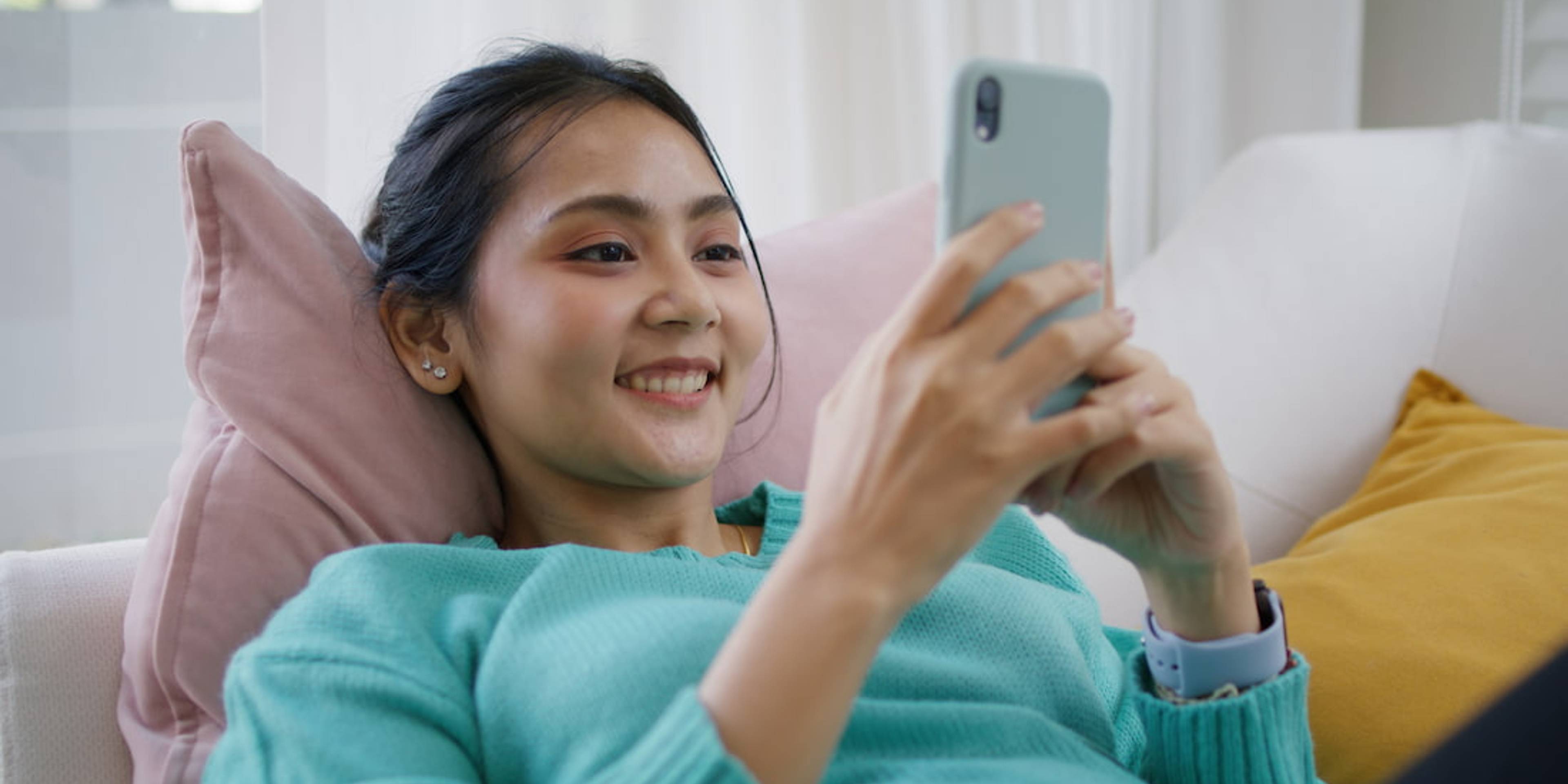
Oct 16, 2025
Algorithmised Girlhood: Teenage Girls and TikTok
As part of the early stages of her PhD study, our latest researcher of the month, Chiara Fehr, ran several focus groups about experiences of TikTok with eight 17 year old girls. Using creative methods, such as ‘TikTok show and tells’ a collaging session and a utopic mapping exercise, Chiara is exploring whether dominant narratives around growing up in a digitised world reflect the real life experiences of teens, and has summarised her findings so far in a recent article.

Aug 13, 2025
Students’ views on smartphone bans
In recent years, banning or restricting children’s access to smartphones and social media has grasped the attention of policy makers, schools and parents. A number of countries, including France, Turkey, Norway, Sweden, and regions of the US and Canada have introduced laws, policies or guidance for schools to ‘ban’ or heavily restrict the use of phones. Within Ireland, in 2024, the Minister for Education announced her intention to introduce smartphone bans in post-primary schools, whilst at the same time acknowledging that individual schools are best placed to decide on the scope and scale of restrictions for their students. Whilst these bans aim to protect children from harm, and teachers often anecdotally report seeing benefits, evaluations of existing research highlight a lack of evidence on their efficacy. At the moment, we simply don't know enough about the impact of bans. Evidence is hampered by the fact that technological developments and technology use is moving at a faster pace than research. Some studies suggest that bans are beneficial to academic outcomes and mental wellbeing. Others suggest no effects. However, many studies have methodological weaknesses, use small samples or retrospective data, and can't ascribe causal mechanisms. Our latest Researcher of the Month, Dr Megan Reynolds, has recently published a paper which explores young people's perspectives and experiences of smartphone bans in their schools. Unlike most previous research, it centres student voices in this high profile issue.

Jul 14, 2025
Do teens with mental health conditions use social media differently than their peers?
As Luisa Fassi, our new Researcher of the Month, comments, "The link between social media use and youth mental health is hotly debated, but hardly any studies look at young people already struggling with clinical-level mental health symptoms". In fact, Luisa's large systematic review and meta-analysis found that only 11% of papers published on the topic since 2007 focused on young people with clinical conditions. Her review also showed that the data used to evidence mental health conditions in these existing studies is not always strong or especially robust. Many report links between social media and mental health on the basis of short self-report questionnaires, where young people are asked about symptoms. Whilst this wasn't found as part of Luisa's review, it is also the case that very few papers in the field differentiate between different mental health conditions, or examine different symptoms or conditions (such as anxiety, ADHD or eating disorders) in isolation. To address this research gap, Luisa and colleagues have recently published a fascinating and nuanced paper. It analyses both quantitative and qualitative dimensions of social media use from a nationally representative survey of 3,340 teens in the UK aged between 11 and 19 years old, which was conducted by NHS Digital in 2017. Rather than gathering mental health data from self-report questionnaires, the young people in the survey underwent a full clinical screening, which included interviews with the young people, their parents and teachers. Information about social media use came from questionnaires completed by participants. They were not asked about specific platforms. Luisa used this data to gather novel insights into how social media and mental health are related in teens who both meet and do not meet diagnostic criteria for a wide range of mental health conditions. The study does not establish any causal links, but it does reveals a range of differences between young people with and without mental health conditions when it comes to social media.
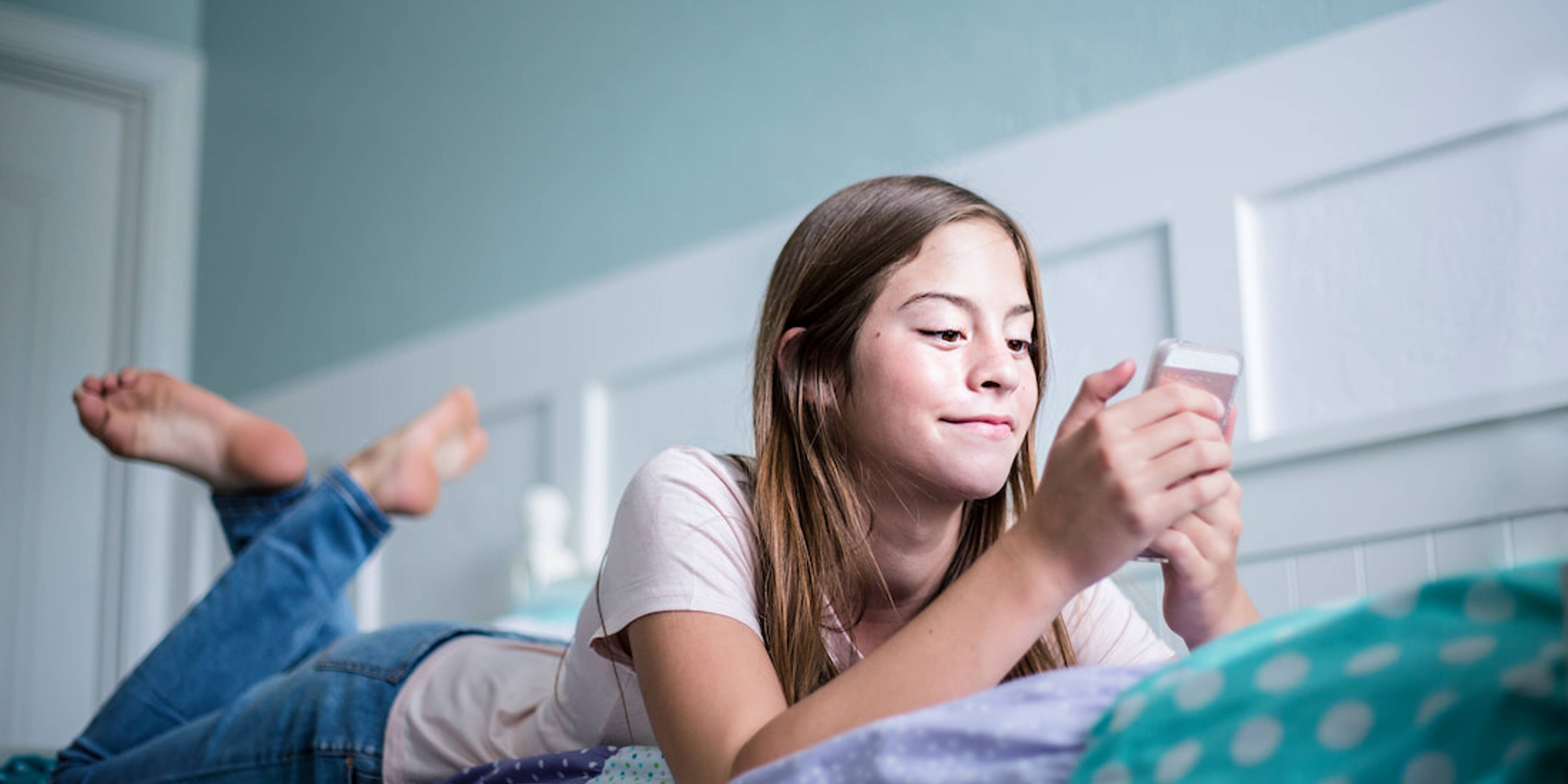
Jun 17, 2025
Navigating the feed: younger adolescents' reflections on algorithmically curated social media
Our latest researcher of the month, Roxana Pomplun, has investigated the interactions, experiences and perceptions of younger adolescents, aged 11, 12, and 13, with algorithmically curated platforms such as TikTok, YouTube Shorts, Spotlight on Snapchat and Reels on Instagram. These kinds of platforms use algorithms to personalise and tailor feeds, harnessing user data to suggest content that the individual is most likely to be interested in and engage with. As such, young people have little control over what they are seeing in their feeds. Tech companies are not yet required to be transparent about the data that they are collecting, but it tends to include demographic information such as age, gender or location, along with use patterns. Whilst these sites dominate the digital lives of tweens and teens, until now they have received little dedicated research attention, particularly in relation to younger users, with most existing studies focusing on older teens. Whilst we know that most social media platforms have age limits of 13, we also know that many younger children are active users, particularly of algorithmically curated platforms like TikTok and YouTube Shorts. Given that early adolescence is a life phase marked by critical neurological development, identity development and heightened susceptibility to mental health issues, deepening our understanding of how younger adolescents engage with social media is vital. Roxana's qualitative research, where a group of young people eloquently explore their own experiences and perceptions, broadens our knowledge of social media use within an age group that appears increasingly aware of the digital influences shaping their online experiences, yet which is still in need of support to fully navigate these ecosystems.

May 15, 2025
Looking beyond smartphone bans
Over the last year or so, there has been a surge in public concern around smartphones and social media. Banning or restricting children’s access to smartphones and social media has grasped the attention of policy makers, schools and parents. A number of countries, including France, Turkey, Norway, Sweden, and regions of the US and Canada have introduced laws, policies or guidance for schools to ‘ban’ or heavily restrict the use of phones. In the UK, there are proposals to raise the age of ‘internet adulthood’ from 13 to 16, and to ban smartphones in schools. The third reading of a private members’ bill on this topic will be heard in parliament in July. Whilst these bans aim to protect children from harm, recent studies highlight a lack of evidence on their efficacy. Along with a team of international experts, our latest Researcher of the Month, Professor Victoria Goodyear, argues that, in isolation, banning smartphone and social media access fails to equip children for healthy use of technology. She suggests that there is a need to shift debates, policies and practices away from a sole focus on restricting smartphone and social media access, toward an emphasis on nurturing children’s digital skills for healthy technology use, and a rights-respecting approach which is underpinned by age-appropriate design and education.
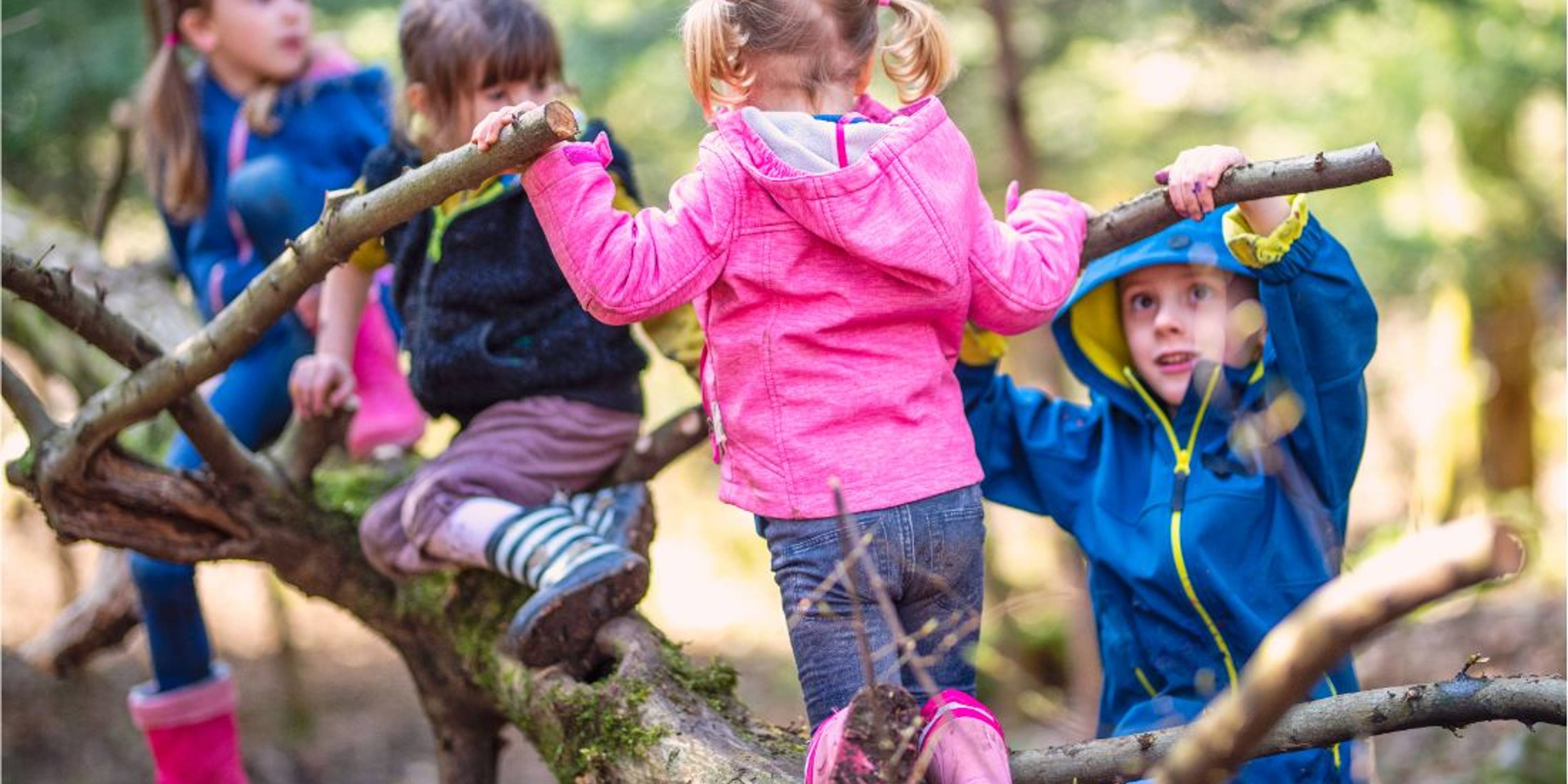
Apr 22, 2025
Encouraging adventurous play in the preschool years
Tune into our podcast interview with April's researchers of the month here. As well as providing numerous opportunities for exploration, joy, and expression, outdoor and adventurous play - the type of play that allows children to take age-appropriate risks - is associated with a range of positive health behaviours and outcomes. Yes, we're talking about the kind of play that might leave us adults with our hearts in our mouths at times, as children start to disappear up a tree, or engage in a rough and tumble game of chase. But its benefits are wide-ranging and known impacts include increased levels of habitual physical activity alongside better mental health and positive mood. In 2019, Dr Hesketh was involved in the creation of physical activity guidelines in the UK, which explicitly note the importance of outdoor play for children in the preschool age group. We know quite a lot about the play habits of school-aged children, but until now, have had significantly less data on their younger counterparts. Our Researchers of the Month, Dr Kathryn Hesketh and Professor Helen Dodd set out to discover how much time preschool-aged children spend playing in a range of indoor and outdoor spaces, and how adventurously they are playing within them. In the first national survey of play in children of this age, they asked over 1000 parents of two to four year olds about their children’s play habits, finding that, on average, children aged two to four spend around four hours per day (outside of educational settings) playing. Just under 50% of this was spent playing outdoors. Their findings shed interesting light on some inequalities in play, even in the youngest age group, which may exacerbate existing inequalities in health.

Mar 17, 2025
Fostering a school culture against bullying: the KiVa Programme
Bullying is an extremely important public mental health risk. Around one in five primary school children report being bullied at least weekly. Children who are bullied are more likely to experience depression and anxiety, and are at heightened risk of mental health issues in adolescence and adulthood. Whilst schools in England and Wales are required to have anti-bullying policies, rates of bullying remain high. Bullying is preventable, but schools need more help to tackle it. Typically, school policies focus on how to handle bullying once it happens. However, evidence suggests that a comprehensive approach involving the entire school to prevent bullying, alongside clear strategies for addressing confirmed cases, is the most effective way to tackle the issue. KiVa is one such whole-school approach, developed in Finland by Professor Christina Samivalli. A large study in Finland which involved 28,000 primary school pupils found that adopting the KiVa programme in Finnish schools significantly reduced bullying and improved children's mental wellbeing. The programme has since been rolled out nationally by the Finnish government and ongoing use of KiVa in Finnish schools is associated with year-on-year incremental reductions in bullying. Along with colleagues, our researcher of the month, Professor Judy Hutchings OBE, has tested the effectiveness of the KiVa Programme in UK primary schools. The study involved over 11,000 children in Wales, Birmingham, Oxfordshire and Devon, and showed a 13% reduction in reported rates of bullying when compared with existing school approaches to tackle bullying.
